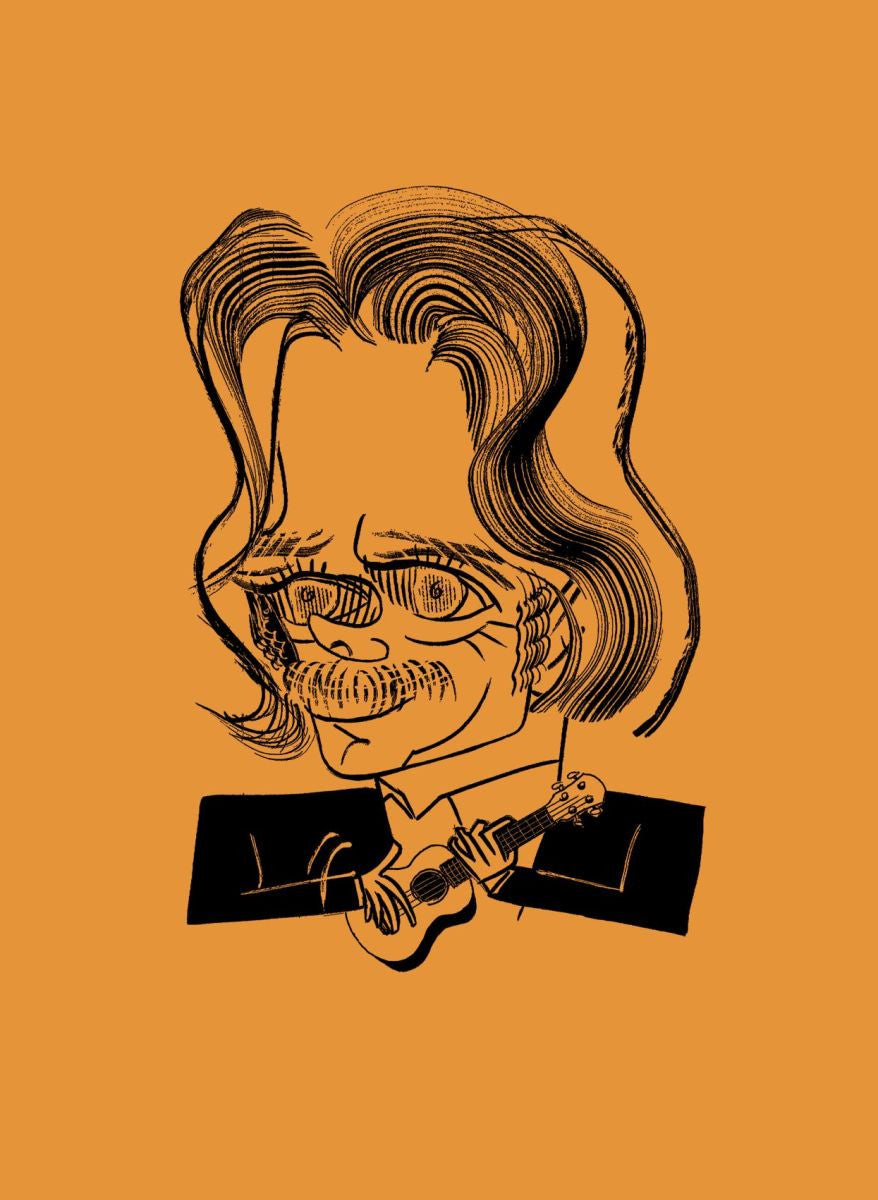William H. Macy’s stock-in-trade, discontent, had made him dangerously content. Long the go-to guy for intense anxiety in such films as “Fargo” and “Magnolia,” Macy has more recently been playing a drunk on Showtime’s “Shameless,” which shoots not far from his home in the Hollywood Hills. Over lunch on the Lower East Side recently, he said, “I get on my Triumph motorcycle, tootle to Warner Brothers, the guards raise the gate, we slap palms as I go by, and I feel like the king of the goddam world!”
At sixty-four, Macy appears a decade younger. He has shoulder-length hair, staring blue eyes, and a candid, impulsive manner. “My comfort zone was large,” he continued. “I needed to get really, really far out of it.” So he directed his first film, “Rudderless,” which opens later this month. It’s an unflinching portrait of a businessman named Sam (Billy Crudup), whose son, Josh, dies in a shooting rampage on campus. Sam moves away and falls apart, then begins playing songs that Josh wrote, as a way of communing with him. He forms a band, but doesn’t tell the others who wrote the songs.
For a while, it seemed as if the film might never happen. “Everyone always told me, ‘You could get a movie made in two minutes!’ Well, that ain’t true,” Macy said. “Some people have a fantasy about what celebrity can do—well, mycelebrity. If Tom Cruise wanted to direct an indie, he wouldn’t have any problem. And people get really nervous when they write checks for millions of dollars—well, in my case, hundreds of thousands of dollars.” How big was the budget? “I’m not supposed to say, but if you counted to three”—million—“you’d have passed it by one.”
What kept Macy sane, as he fretted at the video monitors, was his ukulele. “It was my pacifier,” he said. “Ukuleles! They’re completely portable, and anyone can play one—there’s only four strings. Every rock band has a ukulele”—he sang a bit of Train’s “Hey, Soul Sister” to demonstrate—“and two songs in my film use ukuleles. Plus I gave ukes to everyone as wrap gifts. They were all over the place.”
All this ukulele talk made Macy eager to shop for one. As he walked the few blocks to Ludlow Guitars, he said that when he looks at “Rudderless” all he sees is the flaws. “I’m in a bind, because I do want to sell tickets,” he said. “But the truth is it’s not like ‘There are a few things I’d fix’—it’s more like ‘There’s a couple of sequences I’d keep.’ ” He shrugged. “I think the montages worked well—the ‘band got famous’ montage tells a lot of story and allowed me to play a lot of their music.” He wrote to songwriters, explaining that he wanted pure pop, songs you could hum after one hearing. “With band movies like ‘Almost Famous,’ you remember the source music, but you never remember what the band played.” His film’s songs, particularly the mournful “Home” (“Well I’m trying to get home / But it feels like another life”), lodge in the memory.
Two days earlier, Macy had finished his second directing gig: an episode of “Shameless.” Does he call himself a director now? He walked on for ten seconds, thinking, then said, “No, but I now feel I can announce that that’s what I want to be. I can’t see never acting again, but directing is my priority.” He brightened: “I just shot a blow job that might be the funniest thing ever on film. Usually, they do it so the head drops out of frame, then you cut to the guy’s face or a chugging locomotive. I used a realistic rubber penis—you see the John Hancock—and then, this took all my courage, but I told the actress, ‘Do like this, then like this.’ ” He demonstrated a few basic rubbing motions. “But the one that kills me is she does this number”: he mimed unscrewing the lid of a jar.
At the guitar store, he tuned a uke, then plucked out a jazzy version of “San Francisco Bay Blues,” tapping his foot in time. “When I went on a road trip on my Harley, I strapped a ukulele from Hawaii, a Mele, in my sissy seat,” he said. “And it was so cute, I looked at it and thought, I’d fuck me.”
The salesman nodded respectfully, then handed Macy an electric Blackbird model. “Wicked cool!” the director said, hooking up to an amp. He bent low and began to play the Beatles’ ”Something.” Eight bars in, he cried, “I’ll take it!” As he slid the instrument into its case, he added, “It’s hard to be depressed around a ukulele. You just pick it up and you’re halfway home.”
2014-10-13
By Tad Friend
Illustration by Tom Bachtell: http://www.newyorker.com/magazine/2014/10/13/ukulele-days




